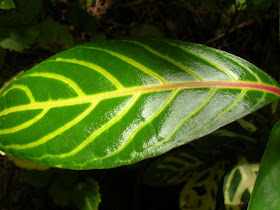ADENIUM OBESUM (sin. Adenium multiflorum, Adenium coetanum)
Origen: en el pasado se reconocían hasta doce especies que han quedado reducidas a una, muy variable, con seis subespecies, con una distribución que abarca caso todo el este de Africa, desde Sudáfrica hasta el Mar Rojo, incluyendo el sur de Arabia.
El nombre de esta planta está tomado de su nombre árabe "aden" que es también el nombre de un golfo y un puerto en el actual Yemen. Popularmente es conocida como "rosa del desierto".
Se trata de una planta suculenta, cuyo tronco engrosado puede llegar a alcanzar más de tres metros de altura.
No soporta el frío, mucho menos las heladas. El frío combinado con humedad lleva a que los tallos se pudran con mucha facilidad.
Al parecer la reproducción es fácil por esquejes pero en Recregarden no lo hemos conseguido.
En Recregarden hemos intentado cultivar esta planta dos veces. La primera en pleno jardín y la segunda bajo un porche orientado al sur. En las dos ocasiones el resultado fue el mismo: la planta murió por pudrición. Ahora mismo lo estamos intentando por tercera vez!!!!
Y a la tercera ha sido la vencida: la planta ha sobrevivido al invierno cultivada en un porche orientado al sur y totalmente seca todo el invierno y ha vuelto a florecer.
English version:
Origin: in the past up to a dozen species were recognized, but now they´re regarded as constituting a sinle variable species with six subspecies, ranging widely through all eastern Africa, from South Africa to Red Sea, including southern Arabia.
Common name: Desert Rose, Impala Lily.
The name of this plant is taken fron its arabic name "aden" that it´s also the name of a port and a gulf in Yemen.
It´s succulent with a swollen trunk that can grow to more than 3 metres hugh.
It doesn´t withstand cold temperatures (of course no frost at all). It´s very prone to rot in humid conditions.
I´ve read propagation is easy from cuttings but here in Recregarden we´ve tried unsuccessfully.
Here in Recregarden we´ve tried to grow it twice. Fist time in the garden and second one in a south facing porch. Both times the plant rot. Right now we´re triying for third time!!!
And the third is the charm: the plant has survived, grown in a south facing porch and completely dry the full winter. Now it's blooming again.
Actualizado a 27/08/2012













































